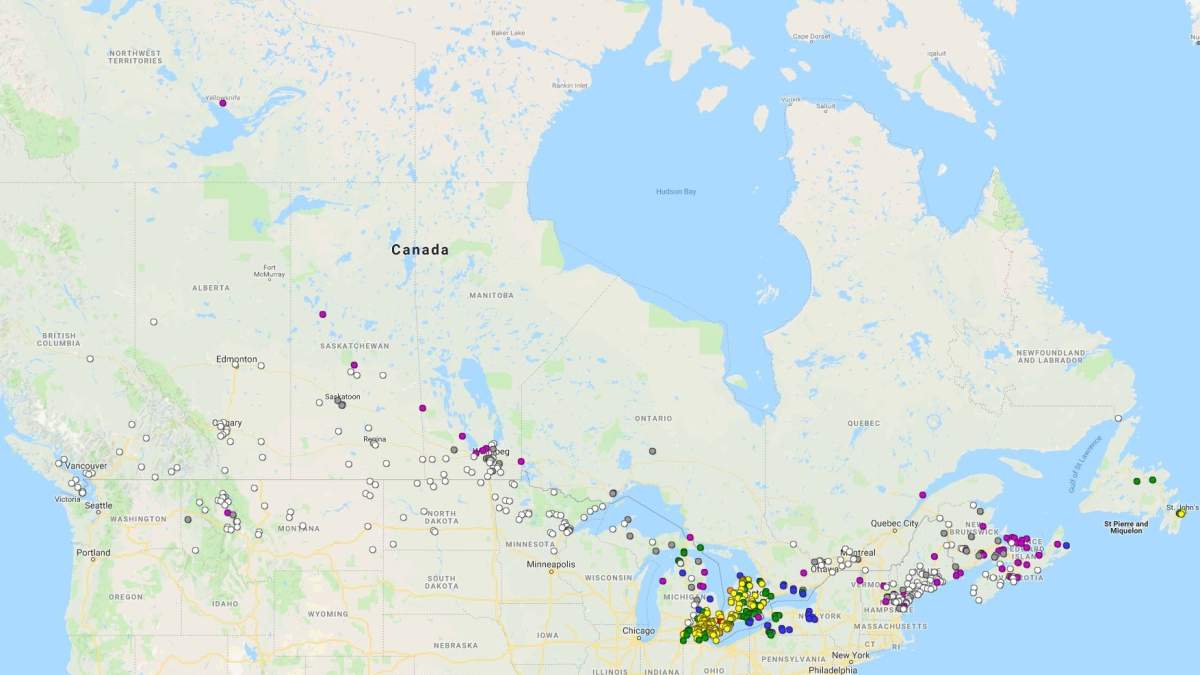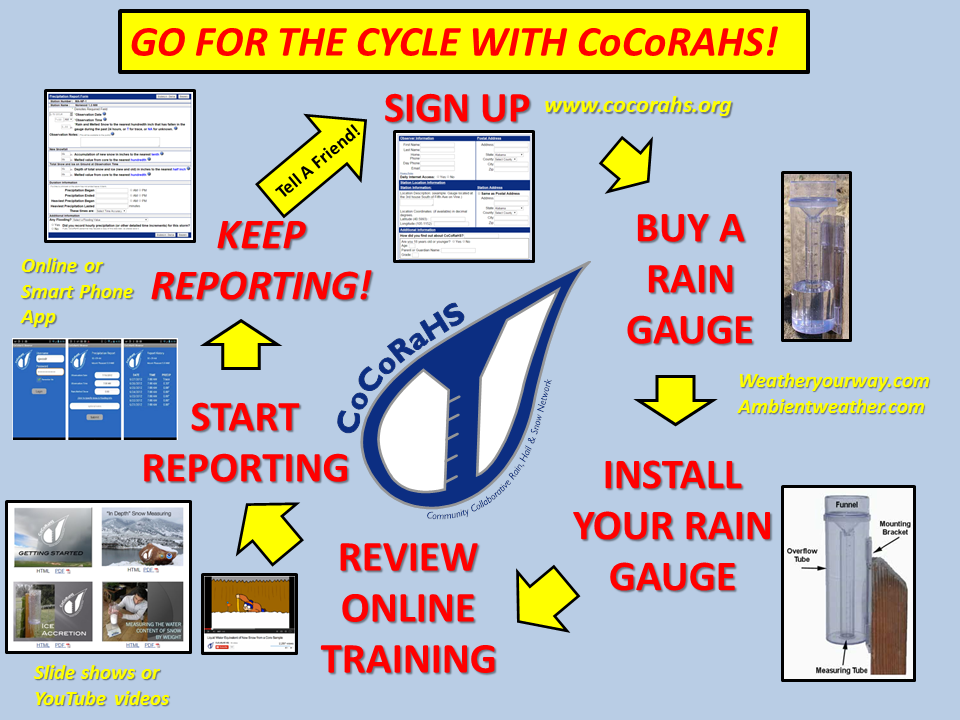The skies are constantly changing here in Alberta, making a perfect storm for weather enthusiasts in our province.

“People love the weather in Alberta and they want to get involved and we really appreciate it and love to see it happen,” said Kyle Fougère, a meteorologist with Environment and Climate Change Canada.
A citizen science program is hoping to tap into that momentum by building a network of volunteer weather observers.
“Citizen science is a way for the general public to get involved in the data collection that we can use at Environment and Climate Change Canada,” Fougère said.
Community Collaborative Rain, Hail and Snow Network, CoCoRaHS, is a public website that posts rain and snowfall data recorded at volunteer weather stations across the country.
In Alberta, there are 45 active stations and nine of those are located in Calgary.
The data is used by a variety of organizations and individuals, helping monitor storm water, soil moisture, mosquito control and much more.

Get daily National news
“We use it at the weather office to help prepare our forecast. We also collect the dataset for verification statistics of our forecasts,” Fougère added.
WATCH: CoCoRaHS volunteers collect precipitation data used by Environment Canada and flood forecasters. Registering data is easy and requires just some basic tools.
The data also lets observers see the difference in moisture from one neighbourhood to the next.
Paul Galachiuk started collecting rainfall data after the 2013 flood in Calgary and became a CoCoRaHS volunteer in 2015.
“What I’ve learned from the 2013 flood is that the amount of rainfall just in my area can differ substantially from just say Capital Hill or even just a south of downtown.”
Galachiuk has his rain gauge set up on the backyard fence, away from his house and any trees. Every morning no matter the season, he goes outside and records the rain or snowfall amounts in the gauge, then inputs them on the CoCoRaHS site.
Being an engineer, Galachiuk says he understands that good data is what helps provide better information.
But you don’t need to be an engineer or meteorologist to become a citizen scientist. The network is built up of enthusiastic people who enjoy watching and reporting the weather.
“If that interests you and you’re keen on the weather, I would strongly recommend it because it’s almost next to no effort to do this.”
If you’re interested in setting a volunteer weather station in your backyard and want to learn more about how weather can effect and impact our lives, visit the CoCORaHS website.
To stay updated with radar and weather alerts in your area, download the Global News Skytracker weather app for iPhone, iPad or Android.
- Calgary senior’s ‘living wish’ made a reality by local flying club
- Calgary police believe Macleod Trail shooting is connected to organized crime
- Alberta boy, 13, sentenced to intense rehab program for trying to murder brother
- CMHC writes to City of Calgary over citywide rezoning and impact to federal funds












Comments
Want to discuss? Please read our Commenting Policy first.